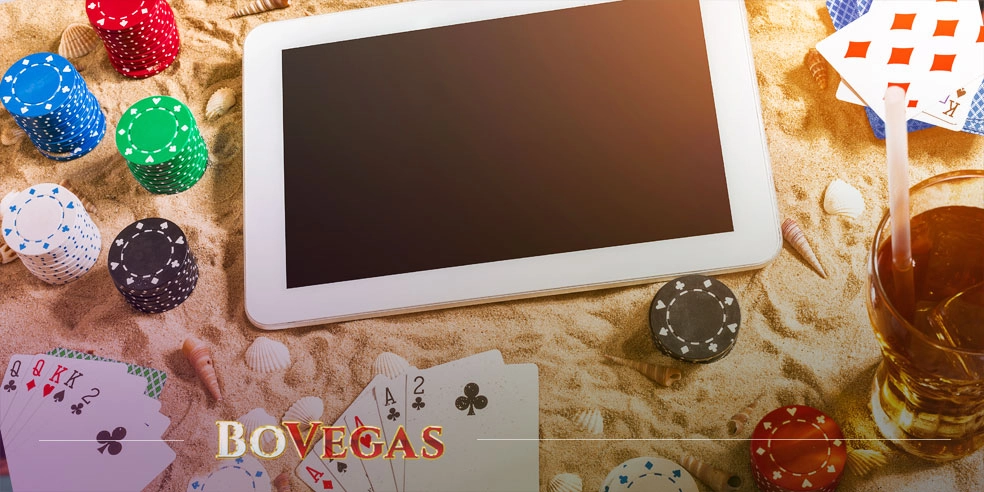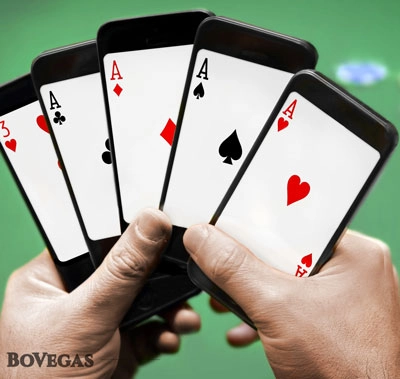



Nowadays gambling has so many forms that it is barely possible to track the changes within the industry. Usually, online casino games are associated with playing for real money. However, in the last few years, the brand new concept of gambling activity has emerged. It is known to the publicity as “social gambling” and usually there are no real bets involved.
Social gambling has numerous interpretations: some people link it to gaming on social media like Facebook or Twitter, others state that it takes its roots from the process when a group of friends or some other community play for fun.
To be frank, social media platforms have little to do with this phenomenon. These are actually most commonly used for marketing purposes to redirect potential clients to online gambling platforms. Due to the fact that all social media websites and applications are free, gaming operators capture the attention of future players with enticing bonuses and incentives like free spins, extra chips, and other prizes. Once a gambler is on the homepage, a casino has the ultimate freedom to advertise whatever it wants.
The creation of free applications and software, where people wager virtual money, is yet another way to increase the outreach of gaming products, as they help introduce users of online social networks to the rich culture of gambling. This is simply an innovative, witty approach towards increasing brand awareness among potential clients.
 The first difference between social gambling in real-life casinos and social gambling in online ones is that there are several players needed to place bets. The second distinctive feature is that, usually, these players don’t bet real money. They can use virtual chips for their stakes instead.
The first difference between social gambling in real-life casinos and social gambling in online ones is that there are several players needed to place bets. The second distinctive feature is that, usually, these players don’t bet real money. They can use virtual chips for their stakes instead.
Punters in social games never get real payouts, but they may gain virtual goods instead. They may also be elevated to the next levels of the game (if it’s possible) and even complete various achievements. This way social gambling providers succeed in retaining their clients, which may lead them ask for more features in exchange for their wins. Some of the more generous operators out there may offer tickets to different venues, merchandise or symbols for the exchange among players.
Once a player is registered for a game, the daily rate of chips is provided to place bets. To get to the next level or get a bonus round, a gambler needs to buy more chips, or else wait till the next day to refill the balance. Now as you can well understand, additional chips can, of course, be bought for real money; but in this case, you do need to ask yourself if it’s definitely not some kind of scam, or yet another online casino pretending to be free!
Last but not least, t social gambling isn`t considered to be illegal in all of the states. The term “legal” in this matter is rather vague. On the one hand, most jurisdictions allow social gambling, but they still forbid table games or online casinos. For example, China has imposed tough restrictions on gambling, but the trend of social gaming continues to skyrocket in the country.
The reason why it’s not restricted yet is that at first glance social gambling functions as an ordinary playing software: you download it, install it and then begin to play. Additional chips and other features you have to pay for may be treated as the same features in every average PC or online game. As long as no real payouts are available and no stakes are involved, the game isn’t treated as a game of chance.
Fun is a crucial factor in social gambling success. Real-time interaction with familiar and trustworthy players, the majority of whom are acquainted with one another, helps to ease any tensions that might otherwise arise during the game. While getting familiar with online slot machines or video poker, people also learn theory on how to bag some real money. You can consider this a kind of preliminary training for rookies before the serious games. It enables people to share their results and achievements with their followers or fellow-punters. There’s even a possibility to create any kind of avatar you want, to customize your account and personalize the game.
Yet another progressive feature of social gambling is blockchain based platforms. Don`t assume that it’s related to cryptocurrencies, because it’s not! The fairness and transparency of the process are guaranteed by this technology, together with the privacy of the clients. Furthermore, some witty players use tokens instead of virtual chips when they bet online. As you see, the possibilities of social gambling are huge.
Anyway, there are still some problems with social gambling. Even though it’s virtual, and the bets are not real, people may still fall into the trap of problem gambling. Because it’s a light version of online casino, where one can afford to lose, some users become addicted to it, and spend far too much time staring at their computers and smartphones. The overall process of social gambling is extremely time-consuming. When it comes to additional rounds or extra spins, providers may hook you on premium plans or real-money chips, which turn your virtual game into a real one!
Despite the fact that social gambling is popular, the choice of games in it isn’t actually any better than traditional gambling. You can still get easily bored with a slots game if it’s played over and over again. In addition to that, there is really nothing to brag about when all of your wins are virtual!
 Currently, the traffic of social gambling platforms prevails over online casino indicators by 20 times. This is quite an impressive trend. In 2017 the estimated social games market in the USA alone was worth $2.15 billion, and it is predicted to surpass $2.4 billion by 2020! The Asian market has also been constantly expanding as well. Of course, in the case of Asia, this growth is boosted by aggravating circumstances in several states as Cambodia or Vietnam, where gambling has been banned recently, forcing people to search for some legal options instead.
Currently, the traffic of social gambling platforms prevails over online casino indicators by 20 times. This is quite an impressive trend. In 2017 the estimated social games market in the USA alone was worth $2.15 billion, and it is predicted to surpass $2.4 billion by 2020! The Asian market has also been constantly expanding as well. Of course, in the case of Asia, this growth is boosted by aggravating circumstances in several states as Cambodia or Vietnam, where gambling has been banned recently, forcing people to search for some legal options instead.
Anyway, the industry itself is still pretty enticing for investors and potential gamblers. The vast number of opportunities within has captured the attention of digital marketing agencies, gambling operators and software companies. One of the most promising fields is represented by augmented reality. Imagine how, in the near future, you will be able to play a card game with close friends or family on the totally empty table in the living room with virtual cards, bets, and dealers. This may end up completely blowing your mind!
In addition to that, many social gambling corporations are already investing in virtual reality, where players may enter casinos without leaving their homes. Just imagine that you may enjoy craps or Blackjack with some kind of virtual copies of celebs like Beyonce or Jay-Z!
Cooperation with social networks is going to be a pretty prosperous opportunity going forward. First of all, social media marketing lowers the expenses for promotion and advertising. There’s no need to operate a bloated budget when you can use Facebook, Twitter, MySpace or Instagram to push your product forward. Currently, Facebook is the biggest culprit, bolstering 60% of social gaming directly through its platform.
While real-life sports betting is banned in many states, the virtual gaming world is very much indebted to Esports betting principles, bolstering online stakes on the results of fantasy sports, cybersports, and different skilled gaming. This niche has been effectively exploited by social gambling due to current legislative gaps in terms of banning sports gambling.

When it comes to naming the best recreational activities in Atlantic City, New Jersey, probably the only thing that pops into your head is gambling. Originally established as a health resort, Atlantic City today looks more like a tiny version of Las Vegas! You cannot even go five steps without looking at glittering and “invigorating” […]
Most players associate Baccarat with games of pure chance. This may be why some people really enjoy playing it, especially when they have a chance to enjoy touring a slew of real casinos in Vegas. Yet, other players don’t like this game because they can’t influence its gameplay using the player’s decisions. And if you […]
When you visit Las Vegas for the first time (after the age of twenty-one), the discovery of free drinks at casinos may turn your world upside down. Beer, cocktails or whatever your soul may wish will start flowing as soon as you start playing. Plus, you don’t need to be a high roller to get […]
Various items are considered to be lucky in different cultures. Practically anything could be an object for beliefs and worship. But the most fascinating examples are probably lucky animals. You’d be surprised to learn how many creatures are considered as bringing good luck. Depending on the cultural background and local peculiarities, different people focus on […]
If you love gambling and have been to a land-based casino at least once, you may have thought about becoming a dealer. Playing the same game but from the opposite side, while communicating with other players, sounds like a dream job, right? A dealer is a straightforward job, and you will be the heart and […]
On Monday September 14, MGM announced that it plans to open its first smoke-free casino at the end of September, when Park MGM will finally reopen its venues to players and tourists. The resort comprises around 2,990 rooms and various restaurants, and it’s set to be reopened on September 30. The venue has been closed […]
Online gambling has undoubtedly taken a place of true supremacy over the casino industry during the pandemic. And the reason for that is quite clear: online casinos are more accessible, and you can always count on some encouragement from the casino administration to help you boost your game. However, this digital revolution has only been […]
The large selection of online gambling sites out there can make players somewhat puzzled, and give them a feeling of uncertainty about making the right choice of casino. Each online gambling venue offers its own conditions, games, and various bonuses, of course; but the most important thing is the reliability of the casino and the […]